PVA – with spool – Transparent – Bambu Lab
Features
- Dissolves easily in water
- Smooth maintenance interface
- Recommended for all PLA and PETG
- Comes with high temperature reusable spool
- Diameter: 1.75 mm +/- 0.03 mm
- 500 g.
Warnings for use
- Used for maintenance only
- Not to be used for stand-alone models
- Dry before use
- Compatible with AMS and AMS lite
- Not compatible with 0,2 mm nozzle
Note: Before you start printing, please read the printing tips for optimal results.
Bambu PVA
Bambu PVA is a water soluble auxiliary material. It provides reliable support for complex designs and overhangs that can be easily dissolved in water after printing. Compatible with various filaments, it simplifies post-processing and reduces the risk of damaging the printed object during support removal.

Soaking and dissolving to maintain intricate details
Bambu PVA has the ability to dissolve in water, penetrating deep into intricate details to provide support where conventional props fail. With Bambu PVA, you can design and print patterns that were previously impossible.
Interface surface for seamless maintenance
The water-soluble support material can adjust to zero top-to-top interface spacing, ensuring a seamless bond with the print surface, resulting in precise and smooth support contact surfaces for your prints.


Thorough and clean dissolution
Bambu PVA uses a high-quality formula that dissolves easily and thoroughly in water, effortlessly removing the carrier material and eliminating the hassle of manual cleaning.

Comparison of maintenance threads
| PVA | Support for PLA | Support for PA/PET | |
| Compatibility: | PLA, PETG, PLA-CF/GF, PETG-CF/GF | PLA, PLA-CF/GF | PA, PA-CF/GF, PA6-CF/GF PAHT-CF/GF, PET-CF/GF |
| Nozzle Compatibility: | Hotend with hardened steel nozzle 0.4 mm/ 0.6 mm/ 0.8 mm Hotend with stainless steel nozzle 0.4 mm |
All sizes and materials | Hotend with hardened steel nozzle 0.4mm / 0.6mm (recommended) / 0.8mm |
| Solubility: | Water Soluble | Water Soluble | |
Compatibility of accessories
| Recommended : |
Not Recommended | |
| Backing: | Cool SuperTack pad, Smooth PEI pad, Textured PEI pad | / |
| Hotend: | Hotend with hardened steel nozzle 0.4 mm/ 0.6 mm/ 0.8 mm Hotend with stainless steel nozzle 0.4 mm |
Hotend with stainless steel nozzle 0.2 mm |
| Glue: | Bambu liquid glue / glue stick / EcoFixy glue | / |
RFID for smart printing
All print parameters are embedded in the RFID, which can be read via our AMS (Automatic Material System).
Load and print! No more tedious setup steps.

| Recommended print settings: | |
| Drying settings (shock drying oven): | 80 °C, 12 h. |
| Printing and maintaining the humidity of the container: | < 20% RH (Sealed, with desiccant) |
| Nozzle temperature: | 220 – 250 °C |
| Bed temperature (with adhesive) : | 35 – 45 °C |
| Print speed: | < 200 mm/s |
| Physical properties: | |
| Density: | 1.27 g/cm³ |
| Vicat softening temperature: | N/A |
| Heat deflection temperature: | N/A |
| Melting temperature: | 202 °C |
| Melting index: | 7.2 ± 1.1 g/10 min. |
| Mechanical properties: | |
| Tensile strength: | N/A |
| Fracture extension rate: | N/A |
| Bending module: | N/A |
| Bending force: | N/A |
| Impact Force: | N/A |
Printing tips
– Drying conditions: 80°C for 12 hours. For optimum print performance, the print should be thoroughly dried before use and after storage. For more information, please see: filament drying instructions on WIKI.
– Please read the PVA Printing Guide carefully before starting the printing process.
– PVA is suitable for use with AMS and AMS lite in the dry state. If the filament becomes soft or sticky due to moisture, it should be re-dried before use to prevent problems such as feed failure, nozzle clogging and low print quality.
– PVA may darken in color after prolonged storage or repeated drying cycles, but this will not affect its print performance or maintenance capabilities.
– We recommend using a normal support instead of a wooden support. The wooden support is more likely to collapse during printing.
– Use warm water to speed up the dissolving process. But if you are maintaining PLA, the maximum soaking temperature of the water should not exceed 50°C to prevent deformation of the base pattern.
– Waiting for complete dissolution is not necessary when soaking and dissolving the PVA support. You can manually remove the partially dissolved PVA support to reduce the waiting time.
– When the supports are dissolved in water, some parts of the base model may leak into the water. To reduce this risk, please refer to Reducing the Risk of Footprint Leakage in WIKI.
– Depending on the use case, Bambu PVA can also be used to print the support interface only to minimize material waste and printing time.

What’s in the box?




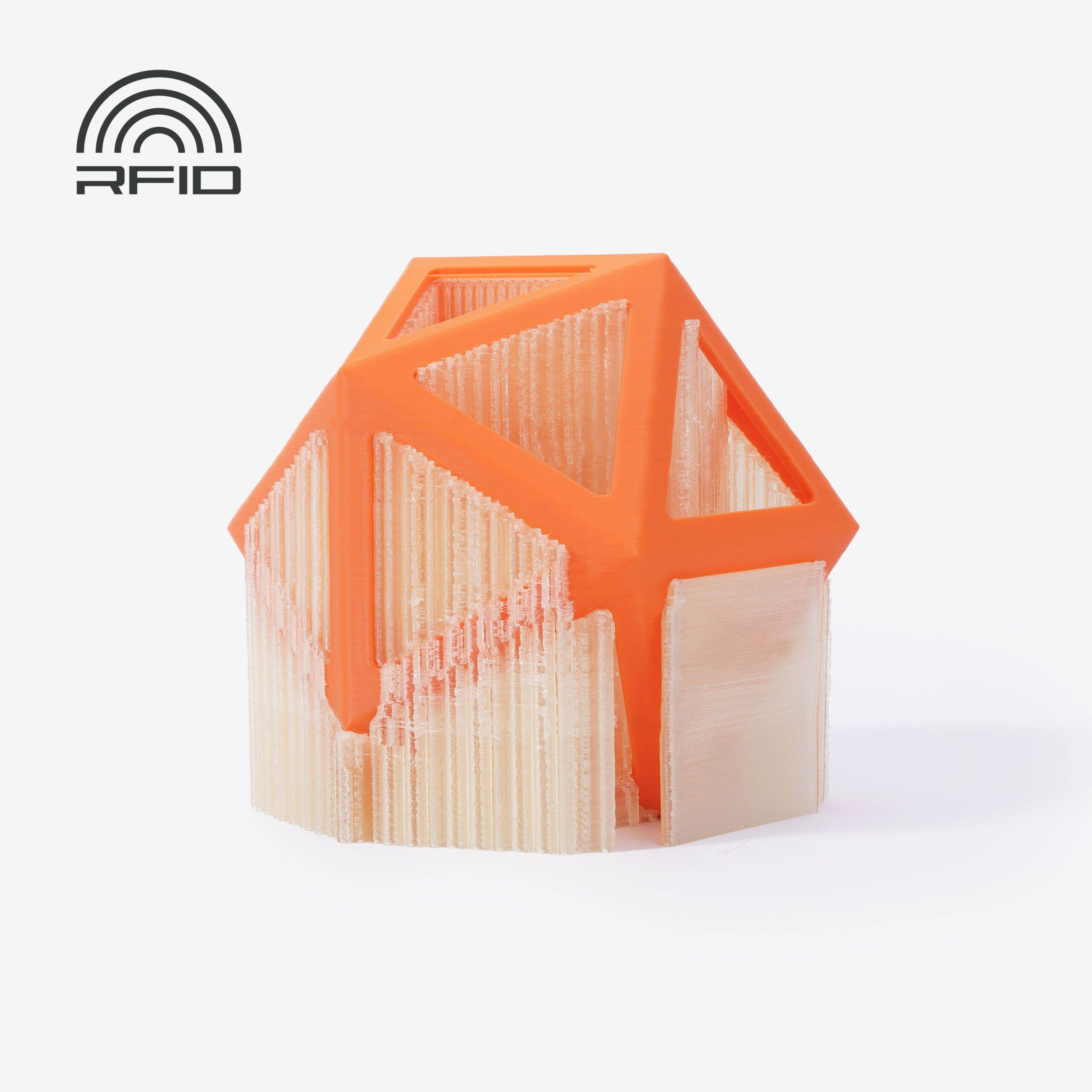
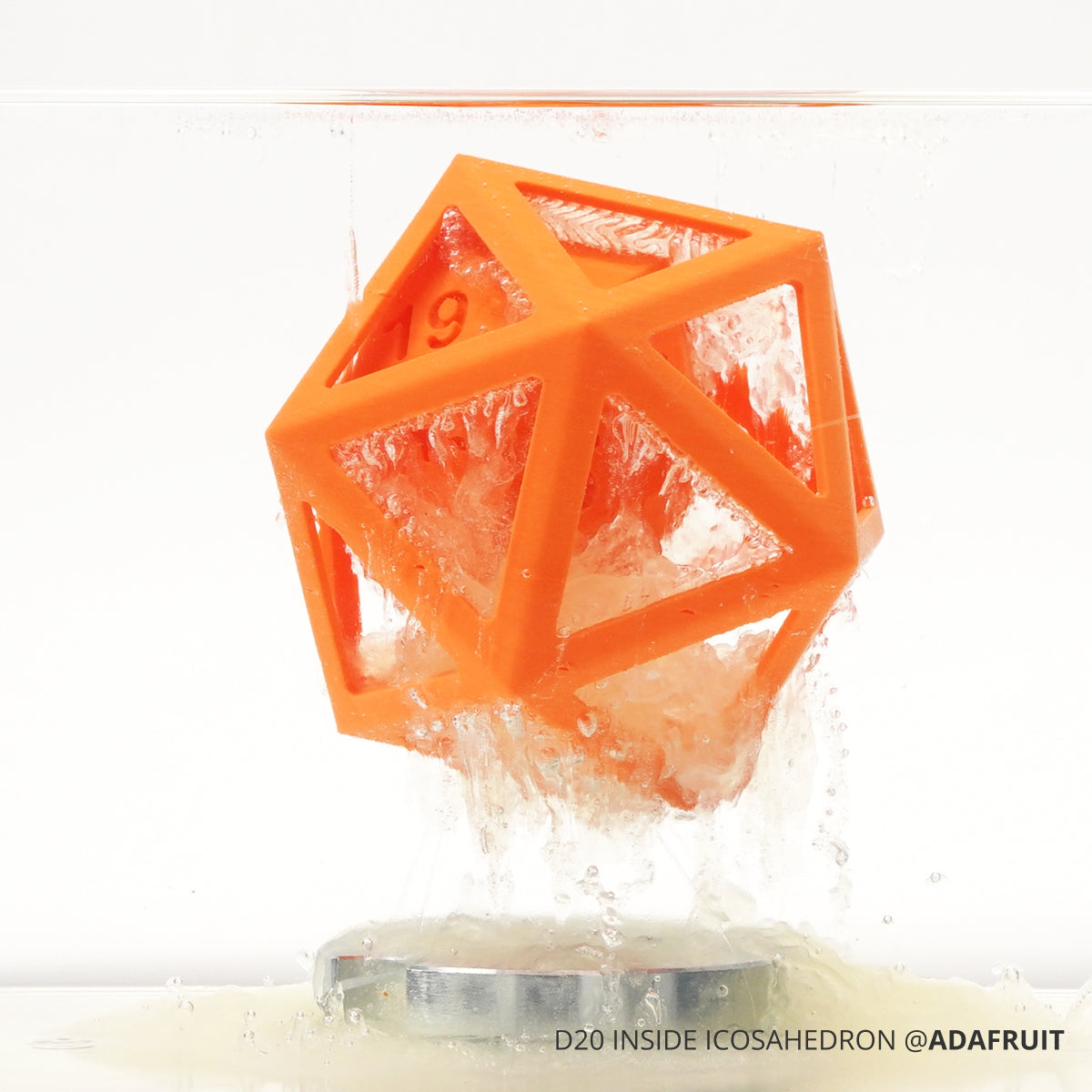
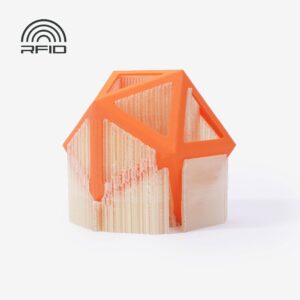



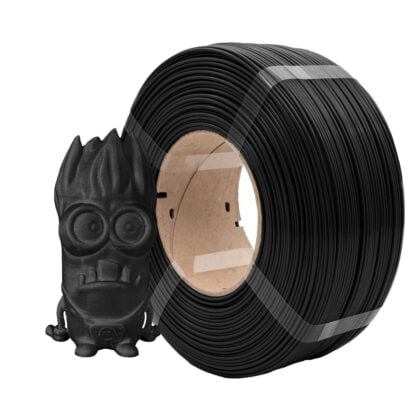




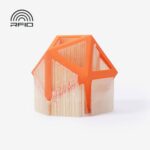

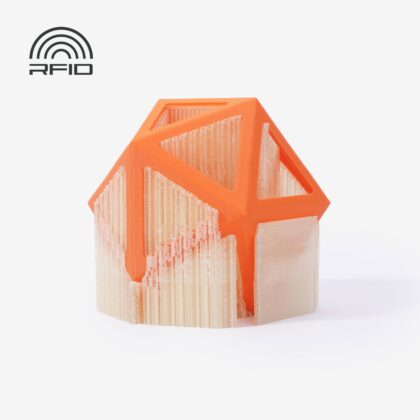
There are no reviews yet.